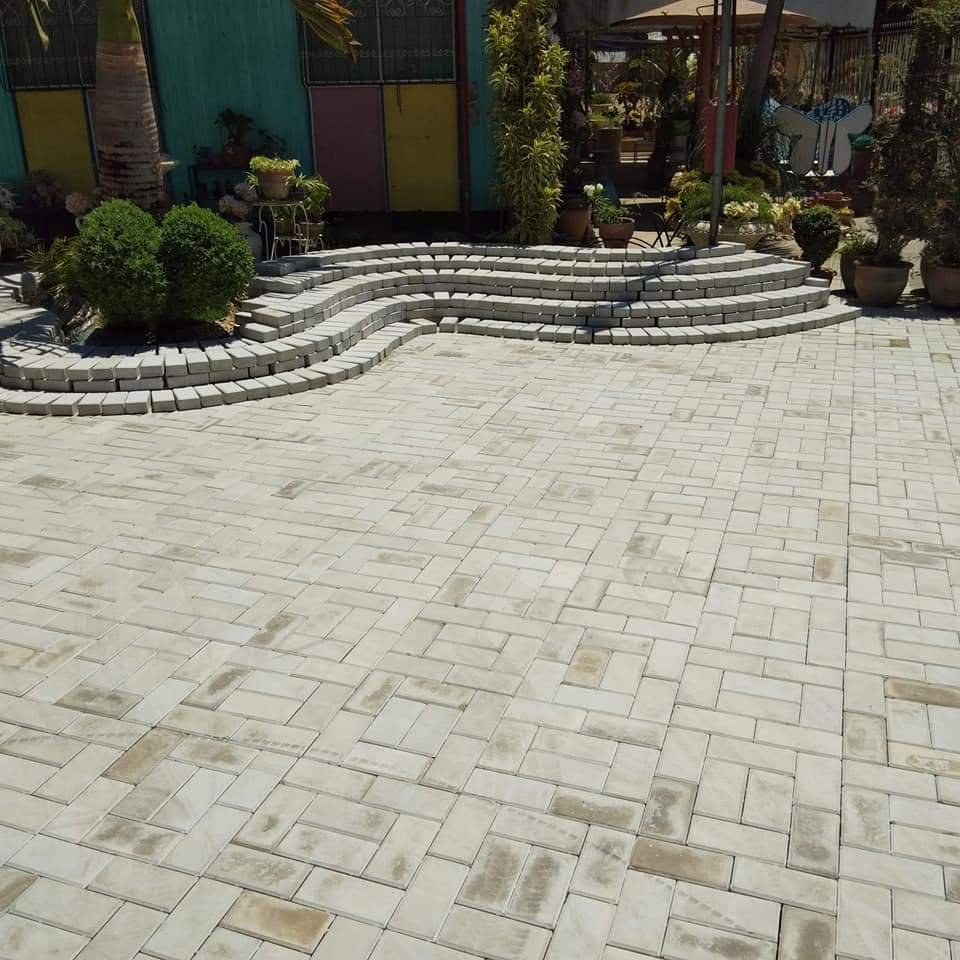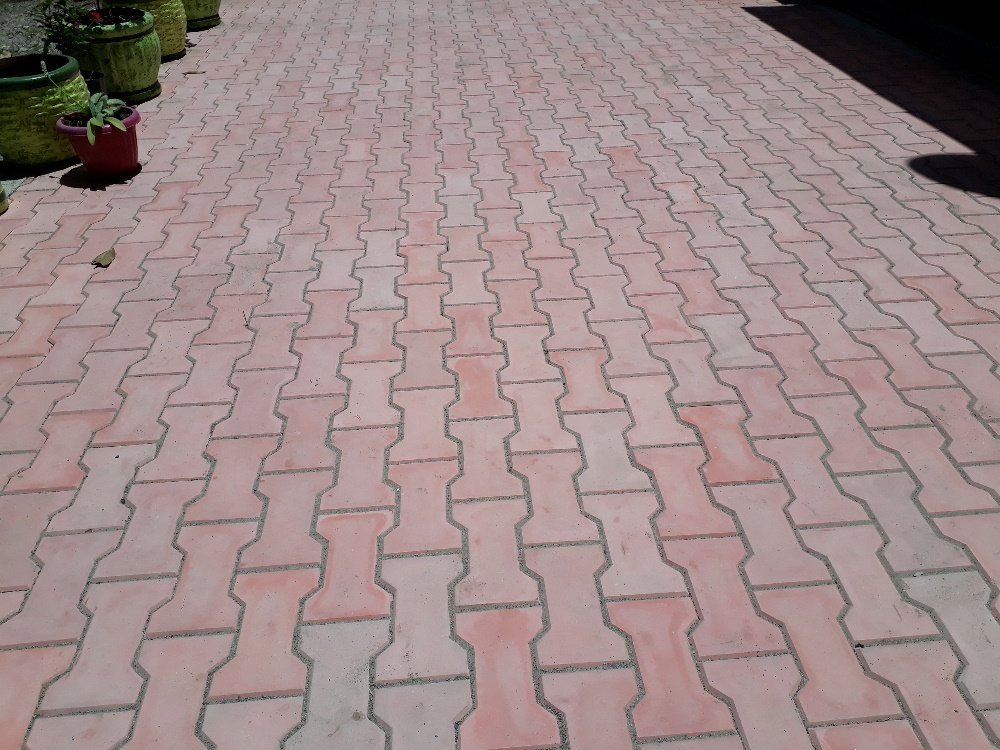


Some facts about concrete pavers:
- There are two different ways to produce pavers: by hydraulic press and by using molds. The first method results in pavers with very high compression, the second in pavers with a smooth surface but lower compression testing results. We use the second method since its easier for pigmenting.
- Unlike concrete, pavers can be used to create patterns and designs, sometimes functional, sometimes artistic.
- Pavers come in different thicknesses. Most commonly 40, 50, 60, 80 or 100 mm. ASTM C936 stipulates that the minimum thickness for concrete pavers should be 60 mm (2.36”). Our pavers fulfill that requirement. Thicker pavers may be required where very heavy traffic is expected (freight facilities, ports).
- If any pavers need to be replaced due to staining, or weathering, it is a simple procedure to remove the offending stone and replace it with a new one. In case of serious damage like landslide or earthquake, pavers can be recovered and reinstalled.
- For work on utilities simply remove the pavers and reinstall them once your work is finished. No need for a jackhammer.
- Paved surfaces do not require a curing period on site like concrete slabs do. Once the pavers are installed, the driveway or other paved area is ready for use.
- Pavers don‘t crack like concrete slabs.
- One of the most important factors for installing pavers is proper compaction of the substrates. Unlike concrete, pavers will give way unless the ground is well compacted.
- An often overlooked property of pavers is their uniformity. Only if they are all of equal size do they fit together and form a smooth surface. Our pavers are all uniform. Furthermore they all have SPACERS. This allows for a small distance of 1 mm between individual pavers. The fine sand which needs to be applied after installation can trickle into these spaces and give the pavement its strength. Without the SPACERS the sand could only trickle down in some places or not at all.

Common applications for pavers include but are not limited to:
| • Driveways | • Patios |
| • Parking areas | • Terraces |
| • Footpaths | • Industrial flooring |
| • Pool decks | • Landscaping |
| • Barangay roads | • Temporary roads |
| • Mechanical fixation of river embankments and dykes | • Mechanical fixation of mountain slopes |


Over time, we will be adding more shapes to our range of pavers. Please be patient.

